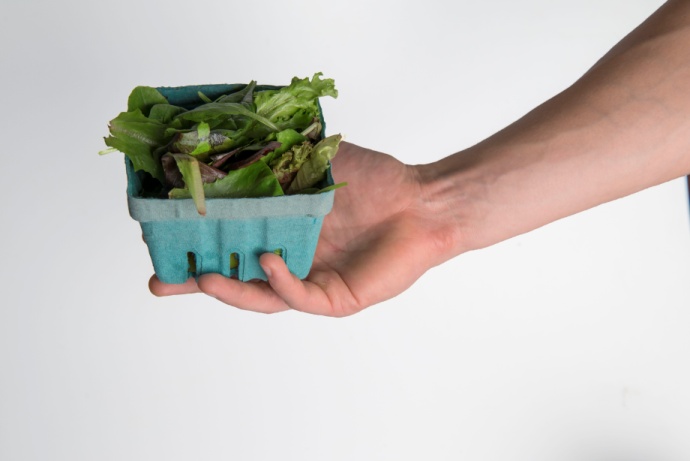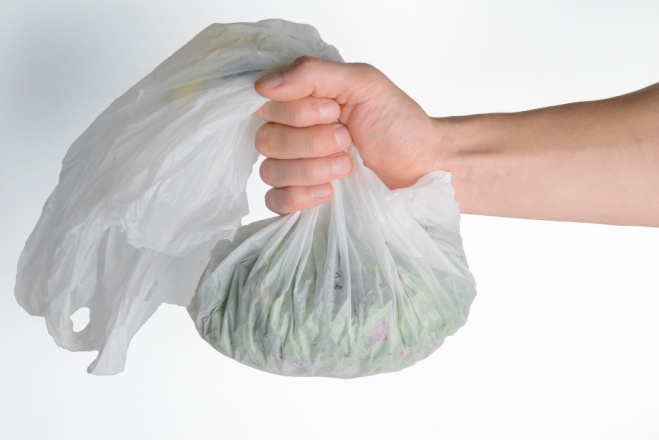Attachment 1 Survey, focus groups & interview questions
0596-NEW Possible Questions.docx
Non-Timber Forest Products
Attachment 1 Survey, focus groups & interview questions
OMB: 0596-0243
Attachment #1
Survey, Focus Group, and Interview Questions for the 2017 ICR on Non-Timber Forest Products (OMB 0596 – NEW)
Contents
Optional Follow-Up Questions Related to Each Foraged Species 5
Optional Follow-Up Questions Related to Consumption of Foraged Species 8
Knowledge of Foraging Regulations/Encounters with Land Owners or Land Managers 13
QUESTIONS FOR LAND MANAGERS 17
Additional Questions for Land Managers 22
QUESTIONS AND SCALES RELATED TO ENVIRONMENTAL CONCERN, SELF & NATURE, SENSE OF PLACE, etc. 23
Ecocentric/anthropocentric attitudes. 25
The New Environmental Paradigm 27
Psychological Distance/Construal Theory 28
This list covers questions that may be asked in a survey, focus group, or interview. Each individual study will use a subset of these questions, not all. Question order will be determined for each individual study. Specific studies may propose a small number of additional questions needed for a particular NTFP inquiry, and subject to OIRA review in the hybrid generic approach.
Questions can be administered orally during an interview or focus group, or completed in a paper or online version. If administered face-to-face, the interviewer will walk respondents through the list of follow-up questions as appropriate. If administered online using a program like Qualtrics or Survey Monkey, the software will automatically guide respondents through the relevant follow-up questions.
QUESTIONS FOR FORAGERS
Foraging Experience
For about how
many years have you been foraging? _______________
How or from whom did you first learn about foraging? Select all that apply:
Books
Internet
Friends
Family
Other foragers
Foraging events (e.g., walks or workshops)
Foraging Meetup group
Other: ________________________________________________________________
Where do you get information about foraging? Select all that apply:
Books
Internet
Friends
Family
Other foragers
Foraging events (e.g., walks or workshops)
Foraging Meetup group
Other: ________________________________________________________________
I don’t seek out information about foraging
With whom do you forage? Please select all that apply.
I usually forage alone
Family members
Friends
Other foragers, whom I only see when foraging
Professional foragers
Other:
________________________________________________________________
Do you forage with children under age 18?
No
Yes
Have you ever done any of the following in areas where you
forage?
Replant/spread seeds
Clear brush/undergrowth
Clear trees/shrubs
Fertilize, water, or use other conventional landscaping techniques
“Fence” areas
Other (please specify): ______________________________________________________________________________________________________________________________________________________
How did you learn to forage? (If it is from a family member, where were they born? What is that person’s ethnic/regional identity?)
____________________________________________________________________________________________________________________________________________________________________________________________________________________________________________________________________________________________________________________________________________________
Have you taught anyone else to forage? If so, how are you related to them?
____________________________________________________________________________________________________________________________________________________________________________________________________________________________________________________________________________________________________________________________________________________
Foraged Species
Please list up to XX plants or mushrooms that you forage for (either the common or scientific name is fine). For each species, please indicate which parts of the plant or mushroom you collect.
________________________________________________________
Which part(s) do you collect? Please select all that apply.
Whole Plant or Mushroom
Berries/fruits
Roots
Leaves
Branches
Flowers
Nuts
Other: ____________________________
[Repeat for
Plant or Mushroom Species #2 through #XX]
[Alternatively, this question can be presented in table form as below.]
What plants or
mushrooms do you forage for in a typical year? Please fill in the
plant or mushroom names in the first column of the table below
(common or scientific name) and check which part or parts you
collect.
Plant or Mushroom Name |
Whole Plant or Mushroom |
Berries or Fruits |
Roots |
Leaves |
Branches |
Flowers |
Nuts |
Other |
|
|
|
|
|
|
|
|
|
|
|
|
|
|
|
|
|
|
|
|
|
|
|
|
|
|
|
|
|
|
|
|
|
|
|
|
|
|
|
|
|
|
|
|
|
|
|
|
|
|
|
|
|
|
|
|
|
|
|
|
|
|
|
|
|
|
|
|
|
|
|
|
|
|
|
|
|
|
|
|
|
|
Whole Plant or Mushroom |
Berries |
Roots |
Leaves |
Branches |
Flowers |
Nuts |
Other |
[In some cases, a list of species of interest may be presented. Species shown here are an example. Lists will be customized for the location of each study.]
Please
indicate which, if any of the following you forage by placing a check
mark (or clicking the button) in the first column and then indicating
which part or parts you forage by placing a check mark (clicking the
button) in the appropriate box(es).
|
Common Name |
Scientific Name |
Whole Plant or Mushroom |
Berries |
Roots |
Leaves |
Branches |
Flowers |
Nuts |
Other |
|
Alaches |
Anoda cristata |
|
|
|
|
|
|
|
|
|
Dandelion |
Taraxacum sp. |
|
|
|
|
|
|
|
|
|
Gingko |
Gingko biloba |
|
|
|
|
|
|
|
|
|
Mulberry |
Morus sp. |
|
|
|
|
|
|
|
|
|
Plantain |
Plantago sp. |
|
|
|
|
|
|
|
|
|
Purslane |
Portulaca sp. |
|
|
|
|
|
|
|
|
|
Shadbush |
Amelanchier sp. |
|
|
|
|
|
|
|
|
Optional Follow-Up Questions Related to Each Foraged Species
How do you harvest this species? Please select all that apply.
Hand pulling/picking
Cutting/clipping
Digging
Other (please specify): ________________________________________
Not sure
How do you
use foraged materials? Please select all that apply.
Art or craft material
Beverage
Cosmetic
Floral use or market
Food
Medicine/health support
Other: _________________________________
When do you
forage for this species? Please select all that apply.
January
February
March
April
May
June
July
August
September
October
November
December
During its
season, how often do you forage for this species?
Every day
Several times per week
Several times per month
Occasionally
Other: ____________________________
About how
much of this species do you collect on each outing? (Please see
foraging quantity visual aids below for rough guidelines.)
½ cup
1 cup (½ pint)
2 cups (1 pint)
4 cups (1 quart)
8 cups (2 quarts or ½ gallon)
More than 8 cups
[This visual aid was developed by Johns Hopkins University public health researchers to support their analyses of exposure risk.]
½ cup |
|
|
1 cup ½ pint |
|
|
2 cups 1 pint |
|
|
4 cups 1 quart |
About
¼ of a grocery bag |
|
8 cups 2 quarts ½ gallon |
About
half of a grocery bag
|
|
How much of what you collect do you typically use yourself?
All or almost all of it
About three quarters
About half
About one quarter
None of it
If not all
of it, what do you do with the rest of it? Select all that apply:
Shared or given as gifts
Traded or bartered
Sold
Other: _____________________________________
If
applicable, where or to whom do you sell it?
Farmers market
Restaurant
Grocery or health food store
Floral market
Other: ______________________________________
Optional Follow-Up Questions Related to Consumption of Foraged Species
How, if at all, do you prepare species that are consumed? Select all that apply:
Washed
Peeled
Consumed raw
Other preparation methods (please describe):_____________________________________
Don’t know (for example, because someone else prepares it)
About how
often do you eat, drink, or otherwise consume this species during its
foraging season?
Every day
Several times per week
Several times per month
Occasionally
Other: ____________________________
Do you
dehydrate, can, or otherwise process this for use outside its
foraging season?
Yes
No
If yes, please explain: __________________________________________
Foraging Locations
[These questions may be administered in person or online with the forager using a paper or electronic map to mark foraging locations.]
How far from home do you typically go to forage?
Within 1 mile
1-10 miles
More than 10 miles
Would rather not say
We’d like
to ask about where you forage. We use this information to analyze
potential risks associated with contaminated soil, and to collect
data to guide efforts to make [insert name of study location]
more bountiful and safer for foragers. We will not share specific
location information with anyone outside the study team and we will
not publish it in any materials.
Please tell us about locations where you frequently forage:
Name of Location: ________________________________________________
Please identify the location on the map.
Please list the plant or mushroom species that you forage
there.
______________________________________________________________________________________________________________________________________________________________________________________________________________________________________________________
If you know, please describe the history of the land at this site. In other words, how was this land used in the past? Please provide details as far back in time as you can.
__________________________________________________________________________________________________________________________________________________________________________________________________________________________________________________________________________________________________________________________________________________________________________________________________________________________
Are you aware of any current or past potential sources of contamination at or next to this location? Please select all that apply and include any additional information you can in the table.
|
Source |
Approx. distance to foraging area |
Uphill or downhill? |
Current or past? |
Notes |
|
Automotive/body shop |
|
|
|
|
|
Building demolition |
|
|
|
|
|
Building fire |
|
|
|
|
|
Dry cleaners |
|
|
|
|
|
EPA Brownfield |
|
|
|
|
|
Factory (please describe what kind in the notes) |
|
|
|
|
|
Gas station |
|
|
|
|
|
Illegal dumping |
|
|
|
|
|
Parking lot |
|
|
|
|
|
Pesticide applications |
|
|
|
|
|
Railroad |
|
|
|
|
|
Road, small to medium (2 lanes or less in the same direction) |
|
|
|
|
|
Road, major (more than 2 lanes in the same direction) |
|
|
|
|
|
Other: |
|
|
|
|
|
Other: |
|
|
|
|
|
Other: |
|
|
|
|
Are there any locations that you did not feel comfortable marking on the map?
No
Yes
If yes: Would you be willing to share some information about those locations without revealing specifics?
No
Yes
If yes: How would you best describe the land at this location? Please select all that apply:
Park
Privately owned forest
Publicly owner Forest
Residential
Industrial
Sidewalk
Roadside
Other:
_________________________________________________________________
If you know, please describe the history of the land at this site. In other words, how was this land used in the past? Please provide details as far back in time as you can.
________________________________________________________________________________________________________________________________________________________________________________________________________________________________________________________________________________________________________________________________________________________________________
Are you aware of any current or past potential sources of contamination at or next to this location? Please select all that apply.
-
Source
Approx. distance to foraging area
Uphill or downhill?
Current or past?
Notes
Automotive/body shop
Building demolition
Building fire
Dry cleaners
EPA Brownfield
Factory (please describe what kind in the notes)
Gas station
Illegal dumping
Parking lot
Pesticide applications
Railroad
Road (2 lanes or less in the same direction)
Road (more than 2 lanes in the same direction)
Other:
Other:
Other:
Motivations for Foraging
What are
the reasons why you forage? Please list the top 5 reasons why you
forage and rate each one from 1 to 5, with 1 being only somewhat
important and 5 being very important. You may use each number as
often as you wish (that is, if two or more reasons are somewhat
important, you may give them both a “1”).
Reason |
Importance (1, 2, 3, 4
or 5; |
1. _________________________________________________________________ |
_______ |
2. _________________________________________________________________ |
_______ |
3. _________________________________________________________________ |
_______ |
4. _________________________________________________________________ |
_______ |
5. _________________________________________________________________ |
_______ |
What does it mean for you to forage? Have there been any especially happy or meaningful times spent foraging that you would be willing to tell us about?
____________________________________________________________________________________________________________________________________________________________________________________________________________________________________________________________________________________________________________________________________________________
Knowledge of Foraging Regulations/Encounters with Land Owners or Land Managers
Do you know of local, state or federal laws or regulations that relate to foraging in any of the places where you forage?
No
Yes
If yes, please explain:
________________________________________________________________________________________________________________________________________________________________________________________________________________________
When you have encountered land owners or land managers, have
you spoken to them?
No
Yes
If yes, what was the nature of these interactions?
________________________________________________________________________________________________________________________________________________________________________________________________________________________________________________________________________________________________
When you have encountered land owners or land managers, have
you talked to them about any regulations that might apply to
foraging?
No
Yes
If yes, what was the nature of those conversations?
________________________________________________________________________________________________________________________________________________________________________________________________________________________
Have you ever asked for permission to forage before doing so?
No
Yes
If yes, who did you ask and what was the response?
________________________________________________________________________________________________________________________________________________________________________________________________________________________
As far as you know, what kinds of laws or rules apply to foraging in the places you forage, if any? How do those laws or rules affect you?
____________________________________________________________________________________________________________________________________________________________________________________________________________________________________________________________________________________________________________________________________________________
Do you face any challenges or problems to foraging?
____________________________________________________________________________________________________________________________________________________________________________________________________________________________________________________________________________________________________________________________________________________
How often have you encountered landowners or managers when you are out foraging? What are those experiences like, typically? Is there any occasion that particularly sticks out in your mind that you can tell us about? What happened?
____________________________________________________________________________________________________________________________________________________________________________________________________________________________________________________________________________________________________________________________________________________
What suggestions do you have to address the problems, challenges, and special needs of foragers like you?
____________________________________________________________________________________________________________________________________________________________________________________________________________________________________________________________________________________________________________________________________________________
Is there anything we haven’t asked you about foraging that you would like to tell us about?
____________________________________________________________________________________________________________________________________________________________________________________________________________________________________________________________________________________________________________________________________________________
Demographic Information
We’d like
to ask you some questions about where you live, your age, race,
ethnicity, income, and level of education. This information helps us
identify populations for whom certain foraged foods, foraging
locations, or foraging in general are particularly important. This
information also helps us design outreach materials, for example, by
translating them to the appropriate languages. If for any reason you
don’t feel comfortable answering any of these questions, you
can decline to answer.
What is your zip code? ___________________________
Would rather not say
In what country were you born? __________________________________________
Would rather not say
What language(s) are spoken in your home? ______________________________________________________________________________
Would rather not say
Do you consider yourself to be Hispanic, Latino, or of Spanish origin?
No
Yes
What race or races do you consider yourself to be? Select all that apply (show list to respondent):
American Indian or Alaska Native
Asian
Black or African American
Native Hawaiian or Pacific Islander
White
Other: ___________________________________________________
Don’t know
Would rather not say
What year were you born? _____________
Would rather not say
How do you identify your gender?
Male
Female
Other
Would rather not say
What is the highest level of education you have completed?
Less than high school
High school, GED, or equivalent
Some college
Associate’s degree
Bachelor’s degree
Graduate degree
Other: _____________
Would rather not say
Are you currently a student?
No
Yes
Would rather not say
What is your household’s annual income?
<$20,000
$20,000-$39,999
$40,000-$59,999
$60,000-$79,999
$80,000-$99,999
$100,000-$150,000
Over $150,000
Would rather not say
QUESTIONS FOR LAND MANAGERS
[These questions can be administered orally during an interview or completed in a paper or online version. Again, this list is exhaustive, covering all questions that may be asked in a survey or interview. Each individual study may use any or all questions.]
Encounters with Foragers
We’re working on an independent research project that looks at foraging for plants and mushrooms. We are interviewing individuals who practice this type of foraging in order to get a sense of the species that are foraged and why, who’s doing the foraging, and where. We also want to learn about the perspectives and opinions of forest/park managers and other authorities in charge of maintaining lands that might serve as places where people forage. We have contacted you because you 1) work for or manage land where foraging has the potential to take place and/or 2) have knowledge about the laws and regulations that govern foraging/removal of forest products from parks and other managed green spaces.
Just to clarify, we’re interested in people foraging from trees, other plants, and mushrooms located in forests, parks, or other green spaces. This includes collecting fruit, nuts, cones, leaves, bark, branches, and/or mushrooms for any use including for food, medicines, crafts, etc.
Have you seen or heard of people foraging plant products or mushrooms in any nearby parks, forests, or other green spaces?
No
Yes
If you have only heard of people foraging in forests, nearby parks or other green spaces, please describe what you have heard about this practice.
________________________________________________________________________________________________________________________________________________________________________________________________________________________________________________________________________________________________
If you have observed
people foraging on the lands you manage, how many times or how often
have you observed individuals foraging forest products in the
parks/other areas that you manage?
Only once or twice in my career
Occasionally, but not every year
Sometimes, once or twice a year
Fairly often, once or twice a month in the foraging season
Frequently, every week in the foraging season
What times/seasons during the year do you usually observe people foraging?
Spring
Summer
Autumn
Winter
Other: ____________________________
Not sure
What types of things have you observed people collecting? Please list specific species if possible.
Whole plants
Plant parts (berries or other fruit, twigs/branches, bark, leaves, sap, seeds, roots, etc.)
Fungi/mushrooms
Specific species: ______________________________________________________________________________________________________________________________________________________
Not sure
Please list any specific species that you know are harvested.
________________________________________________________________________
________________________________________________________________________
>>Or insert species pick list here << Please check species you know are harvested.
How do foragers harvest the products that you have observed them collecting?
Hand pulling/picking
Cutting/clipping
Digging
Other (please specify): ________________________________________
Not sure
When you have observed foragers, have they generally been alone or with others?
Alone
Two or more people
Sometimes alone, sometimes in a group
Not sure
When you have encountered people foraging forest products, have you spoken with [any of] them?
No
Yes
If yes, what was the nature of these interactions?
________________________________________________________________________________________________________________________________________________________________________________________________________________________________________________________________________________________________
If you have spoken with any of the people you’ve observed foraging forest products, did any of them mention the way(s) in which they use the products that they forage? Do they use forest products for:
Eating
Medicinal purposes
Craft materials
Other (please specify): ______________________________________________________________________________________________________________________________________________________
Not sure
What reasons did they give for foraging, if any?
To gather food
To collect things to sell
To collect things to barter or trade
To fulfill cultural or family tradition
To build community through group activity
To obtain plants for transplanting
To teach others about local species
Other (please specify): ______________________________________________________________________________________________________________________________________________________
Not sure
Do you know of local, state or federal laws or regulations that relate to foraging on the land you manage or for which you are otherwise responsible?
No
Yes
If yes, please explain:
________________________________________________________________________________________________________________________________________________________________________________________________________________________
When you have encountered foragers, have you talked to them about any regulations that might apply?
No
Yes
If yes, what was the nature of those conversations?
________________________________________________________________________________________________________________________________________________________________________________________________________________________
Are permits required for foraging or gathering of Non-timber forest products from the land you manage?
No
Yes
If yes, what products require a permit?
________________________________________________________________________________________________________________________________________________________________________________________________________________________
Are the people who gather or forage from the land you manage aware of the process to obtain a permit?
No
Yes
Some are, some aren’t
What do you think might be obstacles to getting required permission or permits?
________________________________________________________________________________________________________________________________________________________________________________________________________________________
Has anyone ever asked for your permission to forage before doing so?
No
Yes
If yes, what did they ask to forage and what was your response?
________________________________________________________________________________________________________________________________________________________________________________________________________________________
Does your [agency/site] require foragers to apply for a permit?
No
Yes
What is the process to get permission to forage on [insert name of the place, the Shawnee National Forest, for example]?On lands you manage or for which you are otherwise responsible, are there penalties for illegal foraging?
No
Yes
If yes, what are they?
________________________________________________________________________________________________________________________________________________________________________________________________________________________
Have you noticed foragers doing any of the following to
the areas in which they forage?
Replanting/spreading seeds
Clearing brush/undergrowth
Clearing trees/shrubs
Fertilizing, watering, or using other conventional landscaping techniques
“Fencing” areas
Other (please specify): ______________________________________________________________________________________________________________________________________________________
Are there any regulations currently in place regarding these or other habitat modification practices?
No
Yes
If yes, please describe the regulations:
________________________________________________________________________________________________________________________________________________________________________________________________________________________
Have there been any changes in the laws or regulations regarding habitat modifications or foraging on lands which you manage?
No
Yes
If yes, what was the nature of these changes and why did they come about?
________________________________________________________________________________________________________________________________________________________________________________________________________________________
Do you have concerns about people foraging on the land you manage or for which you are otherwise responsible?
No
Yes
If yes, what are your concerns?
________________________________________________________________________________________________________________________________________________________________________________________________________________________
Can you imagine any benefits from encouraging people to forage for plant products and mushrooms from the land you manage or for which you are otherwise responsible?
No
Yes
If yes, what sorts of benefits??
________________________________________________________________________________________________________________________________________________________________________________________________________________________
Please share any additional thoughts you might have about foraging on
the land you manage or for which you are otherwise
responsible:
______________________________________________________________________________________________________________________________________________________________________________________________________________________________________________________________________________________________________________________________________________________________________________________________________
Additional Questions for Land Managers
The following questions concern demographic information and you should feel free to refrain from answering any of them. We appreciate your willingness to share.
What department or agency do you work for? _________________________________________________________________________________
What forest,
park, site, or location do you primarily work
in?
_________________________________________________________________________________
What is the highest level of education you have completed?
High school
Two-year college degree
Four-year college degree
Professional degree
Master’s degree
PhD
What is your degree or degrees in? (Please select all that apply)
Forestry
Wildlife Management
Environmental Science or Studies
Conservation Biology
Natural Resource Management
Public Policy
Public Administration
Planning
Recreation
Other: _________________________________________________________
QUESTIONS AND SCALES RELATED TO ENVIRONMENTAL CONCERN, SELF & NATURE, SENSE OF PLACE, etc.
There are a number of widely used scales and questions that deepen our understanding of an individual or group’s attitudes towards and beliefs about their place in the natural world as well as their attachment to certain places and activities. The information provided by these questions provides a broader context to understand foraging behavior. In turn, this deeper understanding will help improve outreach to different groups and individuals, and help frame policy and communication practices to better meet Forest Service goals and forest users’ needs. Merely counting or listing activities is often insufficient to create meaningful management strategies – we need to know about the “why” behind actions and beliefs. These scales help us get to this deeper understanding.
Any given study conducted under this ICR could select one to three of the scales and questions below. No study would use all of them. The specific context and information needs of any given study will guide the selection of these scales. Each of these have been used extensively and are well established in the environmental social science literature. Therefore, they are considered reliable and valid measures of constructs such as place attachment, concepts of self in nature, etc. We are trying to make this research as applicable as possible in real-world situations while also advancing scientific understanding as per our mission.
These scales may be used with either target population: foragers and land managers. Each scale is described below, with citations included.
For a general discussion of research on environmental values, see:
Dietz, Thomas; Fitzgerald, Amy; and Shwom, Rachael. (2005). Environmental Values. Annual Review of Environment and Resources, Vol. 30: 335 -372.
The Environmental Concern scale assesses the degree to which people are concerned about environmental damage to themselves, other humans and the biological world at large.
Source: Schultz, P. W. (2001). The structure of environmental concern: Concern for self, other people, and the biosphere. Journal of Environmental Psychology, 21(4), 327-339.
People often express concern about environmental problems, but some people differ as to which consequences concern them the most. For each statement below, please rate how concerned you are about the possible environmental consequences using a scale from 1 to 7. If you are not at all concerned, give it a rating of 1. If you are extremely concerned, give it a rating of 7. You can also choose any number between 1 and 7 for your answer.
I am concerned about environmental problems because of the consequences for:
_______________________ Plants
_______________________ Me
_______________________ People in my [country/state
_______________________ Marine life
_______________________ My lifestyle
_______________________ All people
_______________________ Birds
_______________________ My health
_______________________ Children
_______________________ Animals
_______________________ My future
_______________________ My children
The Environmental Behavior scale is a short scale intended to measure the extent to which individuals engage in environmental behavior.
Source: Dutcher, D., Finley, J., Luloff, A., & Johnson, J. (2007). Connectivity with nature as a measure of environmental values. Environment and Behavior, 39, 474-493.
Please indicate whether or not you have ever done any of the following
1. Contributed time or money to an environmental or wildlife conservation group? NO YES
2. Stopped buying a product because it caused environmental problems? NO YES
3. Attended a public hearing or meeting about the environment? NO YES
4. Contacted a government agency to get information or complain about an environmental problem? NO YES
5. Voted for or against a political candidate, in part, because of his or her position on the environment? NO YES
6. Changed your behavior in any way because of concern for the environment? NO YES
Self and Nature. This single item graphical scale was an adaptation of Aron, Aron, and Smollan’s (1992) Inclusion of Other in Self (IOS) scale. This modification of the IOS is known as the Inclusion of Nature in Self (INS) scale. This measure is used to measure the extent to which an individual includes nature within his or her cognitive representation of self.
Source: Schultz, P. W. (2001). The structure of environmental concern: Concern for self, other people, and the biosphere. Journal of Environmental Psychology, 21, 327-339.
Please circle the picture below which best describes your relationship with the natural environment. How interconnected are you with nature?

Psychological Distance/Construal Theory. Time can be a critical factor in people’s understanding of environmental issues, and people differ in how they think about and react to closer or more distant issues or outcomes. This scale assesses variations that may arise from closer or more distant psychological events. Source: Strathman, A., Gleicher, F., Boninger, D. S., & Edwards, C. S. (1994). The consideration of future consequences: Weighing immediate and distant outcomes of behavior. Journal of Personality and Social Psychology, 66(4), 742-752.
For each of the statements below, please indicate whether or not the statement is characteristic of you. If the statement is extremely uncharacteristic of you (not at all like you) please write a "1" to the left of the question; if the statement is extremely characteristic of you (very much like you) please write a "5" next to the question. And, of course, use the numbers in the middle if you fall between the extremes.
1 = extremely uncharacteristic
2 = somewhat uncharacteristic
3 = uncertain
4 = somewhat characteristic
5 = extremely uncharacteristic
_____ I consider how things might be in the future, and try to influence those thing with my day to day behavior.
_____ Often I engage in a particular behavior in order to achieve outcomes that may not result for many years.
_____ I only act to satisfy immediate concerns, figuring the future will take care of itself.
_____ My behavior is only influenced by the immediate (i.e., a matter of days or weeks) outcomes of my actions.
_____ My convenience is a big factor in the decisions I make or the actions I take.
_____ I am willing to sacrifice my immediate happiness or well-being in order to achieve future outcomes.
_____ I think it is important to take warnings about negative outcomes seriously even if the negative outcome will not occur for many years.
_____ I think it is more important to perform a behavior with important distant consequences than a behavior with less-important immediate consequences.
_____ I generally ignore warnings about possible future problems because I think the problems will be resolved before they reach crisis level.
_____ I think that sacrificing now is usually unnecessary since future outcomes can be dealt with at a later time.
_____ I only act to satisfy immediate concerns, figuring that I will take care of future problems that may occur at a later date.
_____ Since my day to day work has specific outcomes, it is more important to me than behavior that has distant outcomes.
Limits to Action. Land managers and planners often need to understand what limits people taking certain actions. These questions are tried and true in determining some of the barriers effecting behavior.
How much do the following factors limit your ability to [INSERT ACTION]? Please rate the following on a scale of 1 (Strongly Limits) to 5 (Doesn’t At All Limit).
_________ 1. Lack of information or skills
_________ 2. Time required
_________ 3. Physical or health limitations
_________ 4. Cost
_________ 5. I like things the way they are
_________ 6. It isn’t appropriate for my property
Trust. Research has shown that trust of a source of information is critical to its acceptance, and then to action based on that information. These questions help identify who are trusted sources of information about a given topic (in this case, foraging). They are drawn from the World Bank’s Social Capital Initiative, Working Paper No. 24, Understanding and Measuring Social Capital: A Synthesis of Findings and Recommendations from the Social Capital Initiative. By Christiaan Grootaert and Thierry van Bastelaer. (http://siteresources.worldbank.org/INTRANETSOCIALDEVELOPMENT/882042-1111750197177/20502279/SCI-WPS-24.pdf; http://siteresources.worldbank.org/INTSOCIALCAPITAL/Resources/Social-Capital-Assessment-Tool--SOCAT-/annex1.pdf )
How much do you agree or disagree that the following are trustworthy sources of information about [INSERT ISSUE, such as, appropriate amount of a plant to harvest in the wild, or managing potential contamination in a wild plant]?
[Measure on a 5 point agreement scale including an “am not familiar” option. List appropriate people and organizations, always including family and friends, neighbors, local government options.]
1 = strongly agree
2 = agree
3 = neither agree nor disagree
4 = disagree
5 = strongly disagree
___________ Close friends
___________ Acquaintances
___________ Close family members
___________ Distant family members
___________ Neighbors
___________ Others who share my interests or hobbies
___________ Local government officials
___________ Local nongovernmental organizations
[Etc. NOTE: this list may be generated from initial interview or focus group and therefore may include specific NGO, government office, or other organizations]
Place attachment has been shown to be an important influence for behavior and perceptions of acceptable actions for a given place. This scale elicits information about two primary aspects of place attachment, place dependence and place identity (see sub-headings below). A specific place name, like Central Park, will most often be substituted where the text says “[this place].”
Williams, D. R., & Vaske, J. J. (2003). The measurement of place attachment: Validity and generalizability of a psychometric approach. Forest science, 49(6), 830-840.
How much do you agree or disagree with the following statements? [A subset of the following would be used.]
Please write one of the following ratings on the blank before each statement:
1 = strongly agree
2 = agree
3 = neither agree nor disagree
4 = disagree
5 = strongly disagree
Place Dependence
___________ [This place] is the best place for what I like to do.
___________ No other place can compare to [this area/place].
___________ I identify strongly with [this place].
___________ I get more satisfaction out of visiting [this place] than from visiting any other place.
___________ I am very attached to [this place].
___________ Doing what I do at [this place] is more important to me than doing it in any other place.
___________ Visiting [this place] says a lot about who I am.
___________ I would not enjoy the things I do at [this place] as much at another site.
___________ [This place] means a lot to me.
___________ I wouldn't substitute any other area/place for doing the types of things I do at [this place].
___________ No other place can compare to [this place].
___________ I get more satisfaction out of visiting [this place] than from visiting any other.
___________ Doing what I do at [this place] is more important to me than doing it in any other place.
___________ I wouldn't substitute any other area for doing the types of things I do at [this place].
___________ This is the best place for what I like to do.
___________ No other place can compare to this area for what I like to do in my spare time.
___________ I can't imagine a better place for what I like to do.
___________ [This place] makes me feel like no other place can.
___________ This is my favorite place to go during my free time.
___________ The things I do at [this place] I would enjoy just as much at another site.
Place Identity
___________ I feel like [this place] is a part of me.
___________ [This place] is very special to me.
___________ I feel like [this place] is a part of me.
___________ [This place] means a lot to me.
___________ I am very attached to [this place].
___________ I identify strongly with [this place].
___________ I think a lot about coming to [this place].
___________ [This place] is very special to me.
___________ [This place] says a lot about who I am.
___________ I would prefer to spend more time at [this place] here if I could.
___________ My use of [this place] allows others to see me as I would really like them to see me.
___________ I can relate [this place] to other parts of my life.
___________ Because of my lifestyle, [this place] is important to me.
___________ When I am at [this place], others see me the way I want them to see me.
___________ Visiting [this place] helps me attain the life I strive for.
___________ You can tell a lot about a person by whether they visit [this place].
___________ [This place] is for me.
___________ I use [this place] to help define and express who I am inside.
___________ A visit to [this place] is a bit like giving a gift to oneself.
___________ [This place] is my favorite place to go during my free time.
___________ [This place] plays a central role in my lifestyle.
___________ I find that a lot of my life is organized around [this place].
___________ One of the major reasons I now live where I do is that [this place] is nearby.
___________ I enjoy doing the types of things I do [here] more than in any other area.
___________ Most of my friends are in some way connected with my use of [this place].
___________ Coming to [this place] is one of the most enjoyable things I do.
___________ Coming to [this place] is one of the most satisfying things I do.
___________ I get greater satisfaction out of visiting [this place] than I do out of work.
Other VALUES, ATTITUDES, BELEIFS questions
In your opinion, what are the values you gained from visiting natural areas such as a [NPS SITE]?
|
Strongly agree |
Agree |
Neutral |
Disagree |
Strongly Disagree |
Spending a lot of time in natural settings (woods, mountains, desert, and lakes) makes me happy. |
1 |
2 |
3 |
4 |
5 |
I think of myself as part of nature, not separate from it. |
1 |
2 |
3 |
4 |
5 |
When I am upset or stressed, I can feel better by spending time outdoors “communing” with nature. |
1 |
2 |
3 |
4 |
5 |
I believe that some of today’s social problems could be cured by returning to a more rural life-style in which people live in harmony with the land. |
1 |
2 |
3 |
4 |
5 |
I really enjoy camping and hiking outdoors. |
1 |
2 |
3 |
4 |
5 |
Learning about the natural world should be an important part of every child’s upbringing. |
1 |
2 |
3 |
4 |
5 |
Sometimes I feel like parts of nature–certain trees, or storms, or mountains—have a spirit of their own. |
1 |
2 |
3 |
4 |
5 |
I would feel that an important part of my life was missing if I were Not able to get out and enjoy nature from time to time. |
1 |
2 |
3 |
4 |
5 |
I have never seen a work of art that is as beautiful as a work of nature, like a sunset or mountain range. |
1 |
2 |
3 |
4 |
5 |
I have a lot in common with environmentalists as a group. |
1 |
2 |
3 |
4 |
5 |
VALUES6
Imagine that you could allocate 100 preference points to ensure that [NPS SITE] kept their existing values. You might assign 100 points to one value and zero to all the others, or assign 50 to one, 25 to another and 25 to yet another.
Please read through the list below and use the boxes to assign 100 value points any way you would like. The points you assign should total 100 points.
I value [NPS SITE] because: |
Values Point |
|
|
|
|
|
|
|
|
|
|
|
|
|
|
|
|
|
|
|
|
|
|
|
|
|
|
TOTAL |
100 Points |
VALUES7
The following is a list of characteristics values associated recreational experiences. Please indicate how important each of the items listed below was to you as a reason to choose to visit the park today. (Select one number for each item.)
|
Not at all Important |
Slightly Important |
Moderately Important |
Very Important |
Extremely Important |
Don’t know/not sure |
Remoteness |
1 |
2 |
3 |
4 |
5 |
DK/NS |
Solitude |
1 |
2 |
3 |
4 |
5 |
DK/NS |
Primitive recreation/few facilities |
1 |
2 |
3 |
4 |
5 |
DK/NS |
Pristine natural environment |
1 |
2 |
3 |
4 |
5 |
DK/NS |
Physically challenging/ demanding |
1 |
2 |
3 |
4 |
5 |
DK/NS |
Unconfined recreation/free from rules and regulations |
1 |
2 |
3 |
4 |
5 |
DK/NS |
Requiring self-reliance |
1 |
2 |
3 |
4 |
5 |
DK/NS |
Fostering a sense of humility toward nature |
1 |
2 |
3 |
4 |
5 |
DK/NS |
Fostering connection with nature |
1 |
2 |
3 |
4 |
5 |
DK/NS |
Fostering spiritual connection |
1 |
2 |
3 |
4 |
5 |
DK/NS |
Page
| File Type | application/vnd.openxmlformats-officedocument.wordprocessingml.document |
| Author | Fisher, Cherie L -FS |
| File Modified | 0000-00-00 |
| File Created | 2021-01-13 |
© 2026 OMB.report | Privacy Policy









